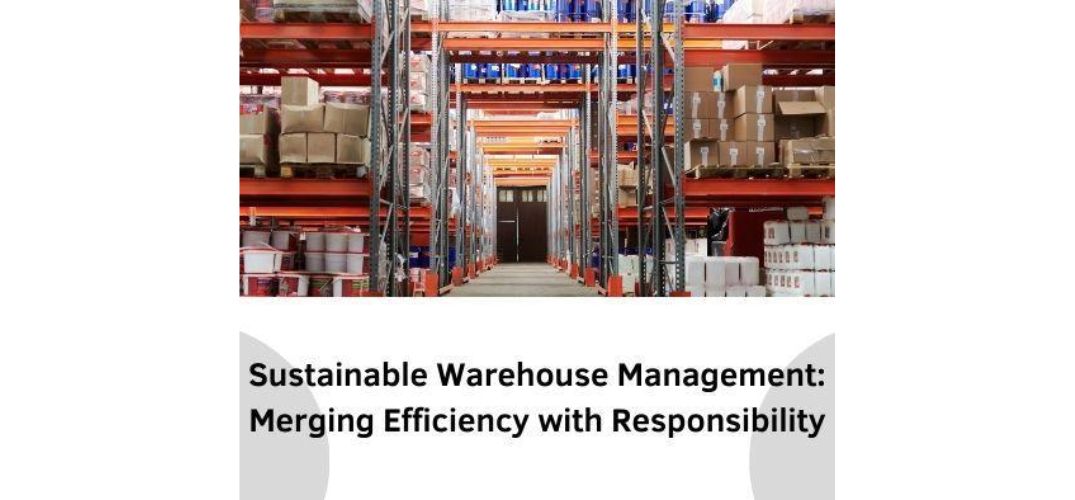In the evolving landscape of global commerce, Parthiban Mohanasundaram, an expert in ERP and supply chain solutions, explores the transformative impact of Warehouse Management Systems (WMS) in integrating sustainability into modern supply chains. His research highlights the evolution of WMS from traditional inventory control to intelligent platforms that drive environmental and social responsibility while optimizing operational efficiency.
The Green Revolution in Warehouse Management
Modern Warehouse Management Systems (WMS) are driving sustainability by integrating AI, IoT sensors, and blockchain. These technologies enhance inventory control, optimize energy use, and minimize waste while promoting ethical sourcing. AI-driven forecasting improves demand accuracy, reducing excess stock and resource consumption. IoT-enabled real-time monitoring enhances efficiency, lowering energy costs and carbon footprints.
Blockchain ensures transparency in supply chains, fostering responsible sourcing. By adopting these innovations, organizations streamline operations, cut costs, and contribute to environmental sustainability. The Green Revolution in warehouse management is transforming logistics into a more efficient, eco-friendly, and ethically responsible industry.
Intelligent Inventory Optimization: Reducing Waste and Enhancing Efficiency
Traditional warehouse operations often result in excessive stockpiling, leading to product obsolescence and waste. Smart inventory optimization systems utilize demand forecasting and shelf-life management to implement first-expiry-first-out (FEFO) principles, ensuring efficient product utilization. Automated quality detection further prevents unnecessary disposal of damaged goods, reinforcing sustainability efforts.
Energy-Efficient Warehousing: Smarter Resource Utilization
With a growing emphasis on carbon reduction, energy-efficient warehouse designs are gaining traction. Advanced WMS platforms integrate sensor-based energy management tools, enabling real-time monitoring and automated adjustments in lighting, HVAC, and conveyor systems. These optimizations have been shown to reduce energy consumption by up to 30%, demonstrating the economic and environmental value of smart warehouse infrastructure.
Transportation Optimization: Minimizing Carbon Footprints
A critical yet often overlooked aspect of sustainable WMS is transportation efficiency. Advanced route optimization algorithms maximize vehicle utilization while minimizing emissions. Real-time route planning, load balancing, and carbon footprint calculations help businesses significantly cut down transportation-related environmental impacts. Studies indicate that such measures can lead to a 15–20% reduction in carbon emissions.
Ethical Supply Chains: Ensuring Transparency and Accountability
Ethical sourcing and fair labor practices are becoming crucial in warehouse management. Integrating blockchain with Warehouse Management Systems (WMS) ensures secure, immutable records of product provenance, labor conditions, and environmental compliance. This transparency enhances trust across the supply chain. Additionally, supplier scoring mechanisms help enforce accountability, promoting responsible procurement strategies. By leveraging these technologies, businesses can uphold ethical standards, mitigate risks, and drive sustainable operations, fostering a more responsible and transparent global supply chain.
Human-Centric Automation: Balancing Efficiency with Workforce Well-Being
While automation enhances operational efficiency, the human element remains integral to warehouse sustainability. AI-driven scheduling algorithms and wearable ergonomic tracking devices help optimize work schedules and prevent occupational hazards. By prioritizing worker well-being alongside efficiency, organizations foster healthier, more productive environments.
Measuring Sustainability: The Role of Performance Metrics
Measuring sustainability requires clear performance metrics to drive effective integration. Modern Warehouse Management Systems (WMS) now feature sustainability dashboards that monitor key indicators such as energy efficiency, waste reduction, and ethical compliance. These data-driven tools provide organizations with real-time insights, enabling them to assess their environmental impact and refine sustainability strategies.
By tracking performance over time, businesses can identify areas for improvement, optimize resource utilization, and align operations with sustainability goals. The ability to measure and analyze sustainability efforts ensures continuous progress, helping companies meet regulatory requirements while enhancing efficiency and corporate responsibility in an increasingly eco-conscious market.
The Future of Sustainable Warehousing
Emerging technologies like quantum computing and autonomous mobile robots (AMRs) are set to further revolutionize warehouse sustainability. Quantum computing’s ability to optimize complex multi-variable supply chain scenarios holds immense potential, while AMRs equipped with environmental sensors will enhance real-time monitoring and automation.
In conclusion, sustainability in warehouse management is no longer a secondary goal but an operational imperative, as emphasized by Parthiban Mohanasundaram’s research. With the integration of AI-driven optimizations, IoT-enabled transparency, and ethical sourcing mechanisms, organizations are fostering a future where warehouse efficiency harmonizes with environmental and social responsibility. Sustainable WMS is not merely a technological advancement—it is a strategic necessity for building resilient and responsible supply chains.





























